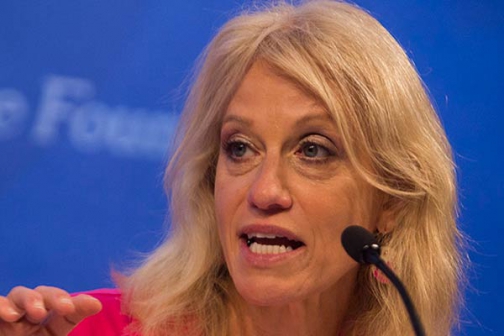
Washington DC: Republican President-elect Donald Trump's campaign manager on Wednesday said there has been no discussion of an appointment of a prosecutor to investigate Hillary Clinton's past practices while serving as President Barack Obama's secretary of state, a threat Trump made in an election debate.
Trump and Vice President-elect Mike Pence are "looking to unify the country, but we haven't discussed that in recent days, and I think that it's all in due time," campaign manager Kellyanne Conway said on MSNBC when asked about the appointment of a prosecutor.